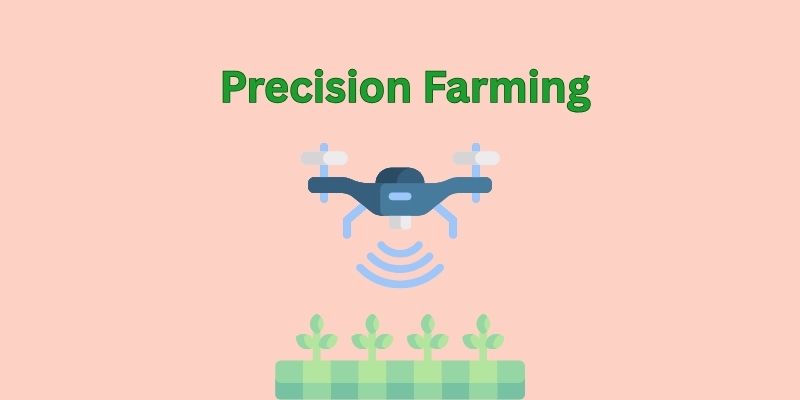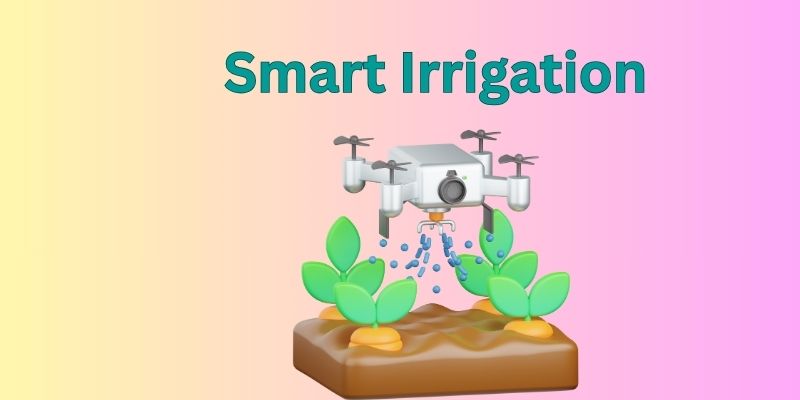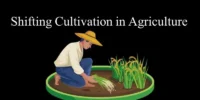Benefits of Artificial Intelligence in Agriculture: A Smarter Future for Farming
Published: 23 Jun 2025
Isn’t farming all about soil, sweat, and sunlight? So where does artificial intelligence fit in?
It might sound strange — even unnecessary — to bring machines, algorithms, and data into the field. For generations, farmers have relied on instinct, tradition, and experience. But what happens when nature becomes unpredictable, pests attack without warning, and resources like water become scarce? That’s where AI steps in — not to replace the farmer, but to help them farm smarter, not harder.
So, guys, without wasting time, let’s jump into the article to Benefits of Artificial Intelligence in Agriculture: A Smarter Future for Farming
Farming Isn’t What It Used to Be
- Rising costs, climate change, unpredictable weather, water shortages, and soil degradation are making farming harder than ever.
- Many farmers are working harder but earning less — stuck in a cycle of uncertainty and stress.
- In a world where food demand is rising fast, traditional methods can’t keep up.
- The question is: how do we produce more with less… and survive?
Artificial Intelligence
- AI isn’t just for big tech companies — it’s now changing how farmers plant, grow, protect, and sell.
- Through real-time data, smart machines, and predictive tools, AI helps make decisions based on facts, not guesswork.
- It’s not about replacing farmers — it’s about supporting them with tools that think, learn, and grow.
- For the first time in decades, technology is working with nature — not against it.
Precision Farming
- AI maps fields in detail using satellite images, soil data, and GPS sensors.
- Farmers apply water, seeds, and fertilizer exactly where needed — not everywhere.
- This means less waste, lower costs, and better yields per acre.
- Emotionally: Finally, every effort counts. Every seed is used wisely.

Spotting Problems Before They Happen
- AI cameras and drones detect early signs of disease, pests, or stress in plants.
- This allows farmers to act fast, preventing damage before it spreads.
- It also reduces the need for chemical sprays, saving money and protecting the environment.
- Emotionally: No more feeling helpless watching your crop fail — you’re one step ahead.
Smart Irrigation: Saving Water, Saving Crops
- AI-powered irrigation only waters when and where it’s needed — based on moisture, temperature, and crop type.
- Farmers avoid overwatering, cut costs, and protect water resources.
- In drought-prone areas, this can mean the difference between harvest and loss.
- Emotionally: Every drop of water is precious — and now, it’s used wisely.

Lower Costs, Higher Profits
- By automating tasks like weeding, spraying, and monitoring, AI reduces labor and input costs.
- Machines don’t get tired, make fewer errors, and run around the clock.
- With fewer surprises and better planning, farmers earn more and lose less.
- Emotionally: Farming becomes a source of hope again — not just survival.
Smarter Decisions with Predictive Analytics
- AI can forecast weather, yields, pest risks, and even market prices based on real-time data.
- Farmers plan better, avoid risks, and make choices with confidence.
- No more guessing — now there’s a strategy behind every season.
- Emotionally: Uncertainty fades. Confidence grows.
Sustainable Farming for the Next Generation
- AI enables targeted use of chemicals, protects soil, and helps rotate crops wisely.
- This keeps land fertile, reduces pollution, and supports long-term health of the farm.
- Emotionally: It’s about more than money — it’s about protecting your land, your legacy, your future.
Accessible Tools for All Farmers
- AI isn’t just for rich countries or big farms — today’s tools are affordable, mobile-friendly, and local-language supported.
- Even small farmers can access real-time advice through apps and smart devices.
- Emotionally: No one is left behind — technology is in everyone’s hands now.
Continuous Improvement Every Season
- AI learns from each crop, each season, and each decision — then adjusts recommendations.
- Over time, the system gets smarter — and so does the farmer.
- Farming becomes a journey of growth, not guesswork.
- Emotionally: Each year brings not more fear — but more strength.
FAQs about Benefits of Artificial Intelligence in Agriculture
Here are some of the most frequently asked questions about the Benefits of Artificial Intelligence in Agriculture.
It may sound surprising, but AI is already being used in fields to help with planting, watering, spraying, and predicting weather. It turns raw data into helpful advice, making farming more accurate and less stressful.
Yes! AI-powered sensors and systems can measure moisture in the soil and track weather, then water only when needed. This saves water, prevents overwatering, and keeps plants healthier.
Not anymore. Many AI tools are now available through mobile apps or simple devices, often at low cost or with support programs. Even small-scale farmers can benefit without breaking the bank.
Yes, AI can use cameras and drones to detect early signs of plant stress, pests, or disease. It works faster than the human eye and helps take action before it’s too late.
No! Many AI tools are built to be simple and user-friendly. Some even use local languages or voice commands, making them easy for anyone to use.
AI reduces waste, helps grow better crops, and predicts market trends. That means fewer losses, better timing, and more profit at harvest time.
Conclusion:
Artificial Intelligence in agriculture isn’t about robots or replacing tradition — it’s about empowering farmers to grow with knowledge, precision, and peace of mind.
It means fewer losses, better food, and farms that last generations.
Because when farmers are supported, the world eats better.
This is more than smart farming — it’s hopeful farming. It’s the future.

- Be Respectful
- Stay Relevant
- Stay Positive
- True Feedback
- Encourage Discussion
- Avoid Spamming
- No Fake News
- Don't Copy-Paste
- No Personal Attacks

- Be Respectful
- Stay Relevant
- Stay Positive
- True Feedback
- Encourage Discussion
- Avoid Spamming
- No Fake News
- Don't Copy-Paste
- No Personal Attacks





